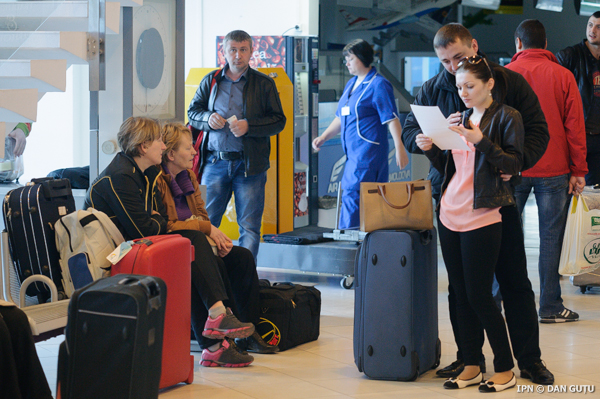
The Republic of Moldova continues to remain the poorest country in Europe with modest economic growth, which generates insufficient jobs. As a result, people go abroad looking for a well-paid job. This is the opinion expressed by Viorel Viitorul Program Director Viorel Chivriga during the 15 minutes of economic realism program.
Although the poverty rate has decreased since 2000, when it was 68%, against the backdrop of rising consumption of the population stimulated by remittances, yet most Moldovans cope with poverty. "In the Republic of Moldova, the low employment rate is observed among the whole population. Moreover, the combined trends of reduced fertility and increased emigration will generate a predicted decrease in the population of the Republic of Moldova, and the proportion of elderly people will get a significant advance", Chivriga explained.
The economic growth of the Republic of Moldova in recent years has been driven by sectors with increased productivity but has not benefited the population, which is predominantly employed in the low-productivity agricultural sector. Despite a relatively high level of education, the skills level of the existing workforce tends to be inadequate to meet the demands of the modern labor market. The country does not have a good skill upgrade and re-qualification system to help the workforce remain in the country.
According to Chivriga, the authorities must take urgent measures to boost the Moldovans' stay in the country. First, authorities need to reconfigure health system funding to deliver good quality, affordable medicines and to ensure that all people have access to water and sanitation. "Welfare gaps and access to urban and rural services require a more active commitment on the part of the Government to improve the delivery and quality of services in isolated areas. Otherwise, these barriers pose risks of deepening inequalities and undermining economic mobility and harmonization across the country".
In conclusion, the program director said it was unclear to promote a safer internal labor market to generate further progress in terms of reducing poverty and prosperity for the population. This implies creating more and better quality jobs and improving access to education, health, and services to enable individuals to have access to these jobs. It is also essential to create an environment where the necessary reforms and the creation of jobs favored by the private sector are possible.
The show is made by IDIS "Viitorul" in partnership with Radio Free Europe.
For further details, please contact the press officer, Victor URSU, at the following address: ursu.victoor@gmail.com or at 069017396.